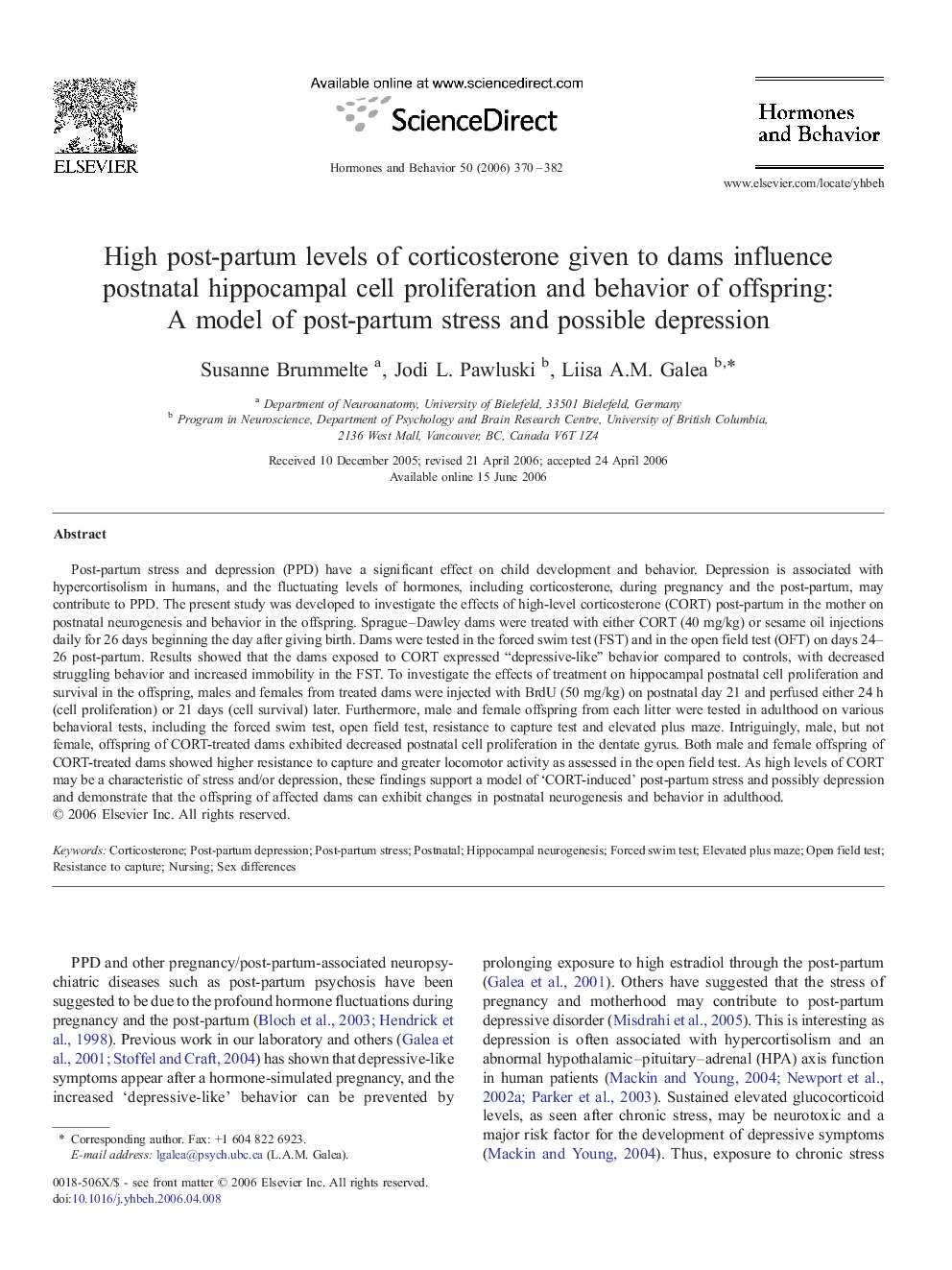| Article ID | Journal | Published Year | Pages | File Type |
|---|---|---|---|---|
| 323895 | Hormones and Behavior | 2006 | 13 Pages |
Post-partum stress and depression (PPD) have a significant effect on child development and behavior. Depression is associated with hypercortisolism in humans, and the fluctuating levels of hormones, including corticosterone, during pregnancy and the post-partum, may contribute to PPD. The present study was developed to investigate the effects of high-level corticosterone (CORT) post-partum in the mother on postnatal neurogenesis and behavior in the offspring. Sprague–Dawley dams were treated with either CORT (40 mg/kg) or sesame oil injections daily for 26 days beginning the day after giving birth. Dams were tested in the forced swim test (FST) and in the open field test (OFT) on days 24–26 post-partum. Results showed that the dams exposed to CORT expressed “depressive-like” behavior compared to controls, with decreased struggling behavior and increased immobility in the FST. To investigate the effects of treatment on hippocampal postnatal cell proliferation and survival in the offspring, males and females from treated dams were injected with BrdU (50 mg/kg) on postnatal day 21 and perfused either 24 h (cell proliferation) or 21 days (cell survival) later. Furthermore, male and female offspring from each litter were tested in adulthood on various behavioral tests, including the forced swim test, open field test, resistance to capture test and elevated plus maze. Intriguingly, male, but not female, offspring of CORT-treated dams exhibited decreased postnatal cell proliferation in the dentate gyrus. Both male and female offspring of CORT-treated dams showed higher resistance to capture and greater locomotor activity as assessed in the open field test. As high levels of CORT may be a characteristic of stress and/or depression, these findings support a model of ‘CORT-induced’ post-partum stress and possibly depression and demonstrate that the offspring of affected dams can exhibit changes in postnatal neurogenesis and behavior in adulthood.
